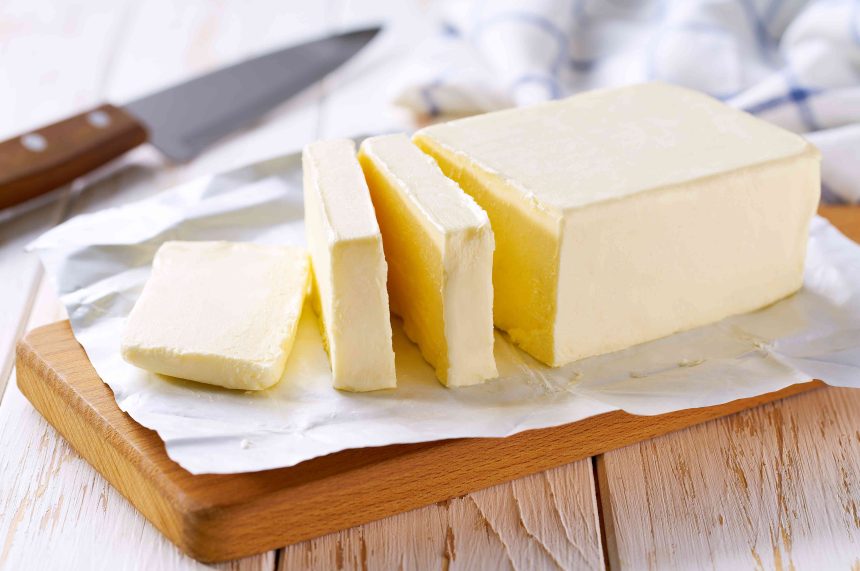Butter lasts a surprisingly long time when compared to many other fresh dairy products—but it will eventually spoil. The type of butter you keep on hand, plus how you store it, makes a significant difference.
How Does Butter Go Bad?
Butter’s high fat- low water composition acts as a barrier to keep air out, creating unfavorable conditions for bacteria growth, which can lead to spoilage. However, the fat in butter is susceptible to going rancid, a result of oxidation that shifts the structure of the fat molecules and affects flavor, smell, texture, and color.
How Detect Spoiled Butter
Here’s how to know if your butter is still good.
- Look for mold or any off-colors. Butter tends to darken as it ages. Old butter may also appear to have a grainier texture.
- Smell it for a sour, rancid scent or off odors, which are largely attributed to the presence of butyric acid, a natural compound in butter that breaks down and becomes more prominent over time. It could smell like blue cheese, smelly feet, or vinegar.
- A lack of flavor could also indicate the butter is past its prime, but has not yet spoiled. Butter that has become completely rancid will have a sour, funky, or bitter taste. (Don’t worry—a little spoiled butter is not likely to make you sick.)
Can You Eat Butter Past the Expiration Date?
Butter packages do contain expiration dates, but butter can still be eaten beyond that date if it still looks, smells, and tastes fine. These dates—used primarily by retailers for stocking shelves—typically indicate when the butter is at its peak, and are not necessarily an indicator of food safety.
How to Store Butter So It Lasts
Butter is best stored in its original packaging. If you have any opened sticks, wrap them tightly in plastic wrap or foil and place in an airtight container to prevent oxidation. Because butter’s subtle flavor can readily take on strong aromas, store butter away from pungent foods, such as onions, citrus, or herbs.
- In the Refrigerator: For long storage, store butter in the package in the coldest area of your fridge (typically on the bottom shelf toward the back) and avoid keeping it in the door, which is less cold than other areas. According to the USDA, unopened or well-wrapped salted butter will last up to 5 months in the refrigerator, while unsalted butter will last up to 3 months. Unwrapped butter will last up to 2 months in the refrigerator. To soften butter, let it stand at room temperature 30 minutes to 1 hour.
- In the Freezer: Store butter in the freezer for up to 1 year. At this point, the quality of the butter will begin to deteriorate which is likely to affect the flavor and texture. To thaw frozen butter, transfer it (in the package or wrapping) to the refrigerator at least 6 to 7 hours before you plan to use it.
- On the counter: The USDA recommends storing butter at room temperature no longer than 1 or 2 days. Beyond that, butter—especially unsalted butters—can begin to develop off flavors. Because avoiding excess heat and air exposure is key to keeping butter fresh, the temperature in your kitchen and how well the butter is wrapped will make a difference. If your kitchen is above 70°F, your best option may be to keep butter in the refrigerator.
How to Store Specialty Butters
Artisan butters, made using traditional methods using cream from cows that are raised with high quality standards, are usually more flavorful with a deeper yellow color and more nutrients than commercially made butter. That is especially true with grass-fed butters, which are richer in omega fatty acids, vitamin A, and beta carotene. Cultured butter, a type of butter with added live cultures (similar to yogurt) has a complex, tangy flavor and contains gut-healthy probiotics. Because there’s so much variation among these products, we recommend storing them according to package directions.







